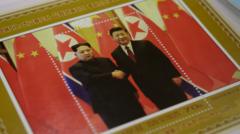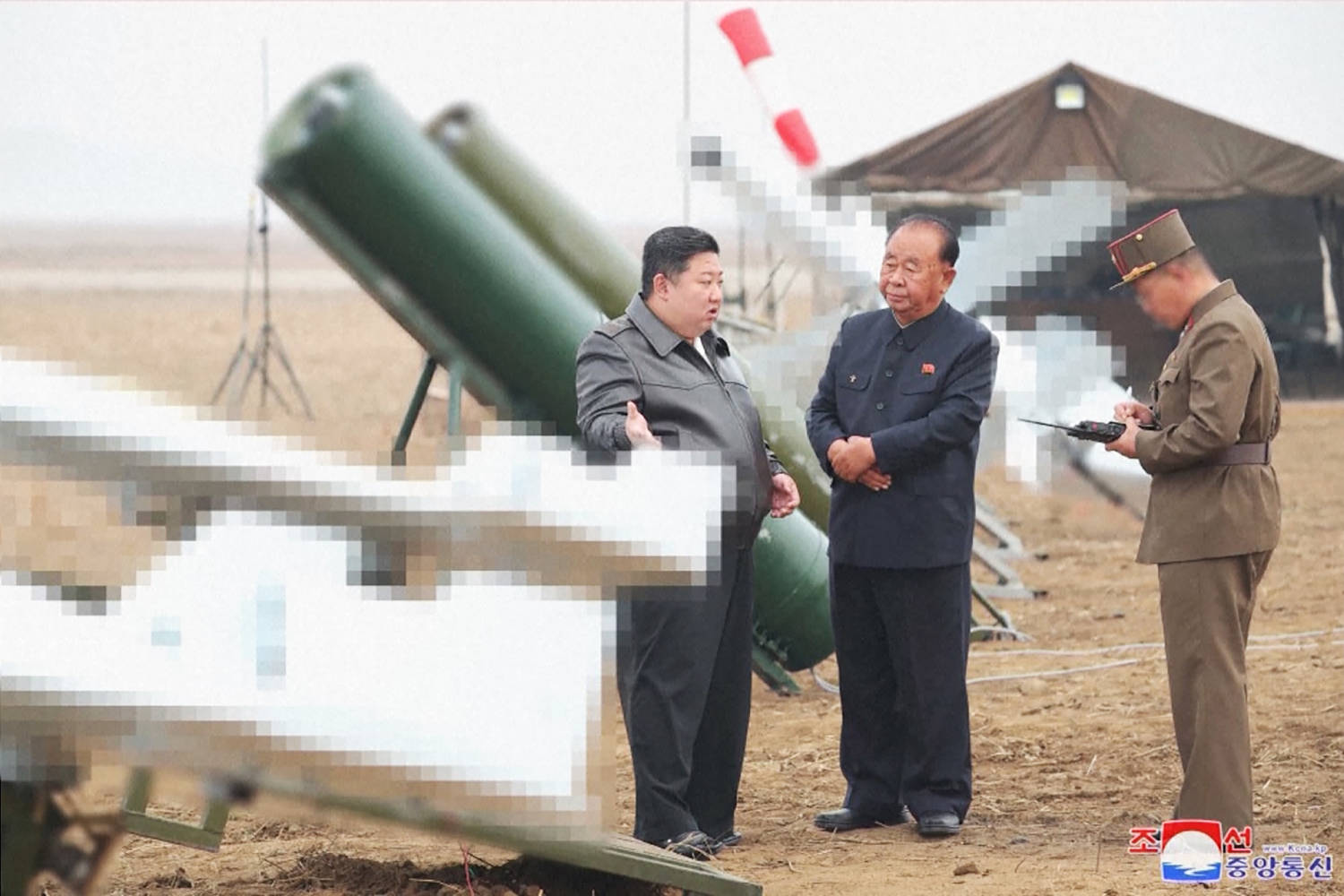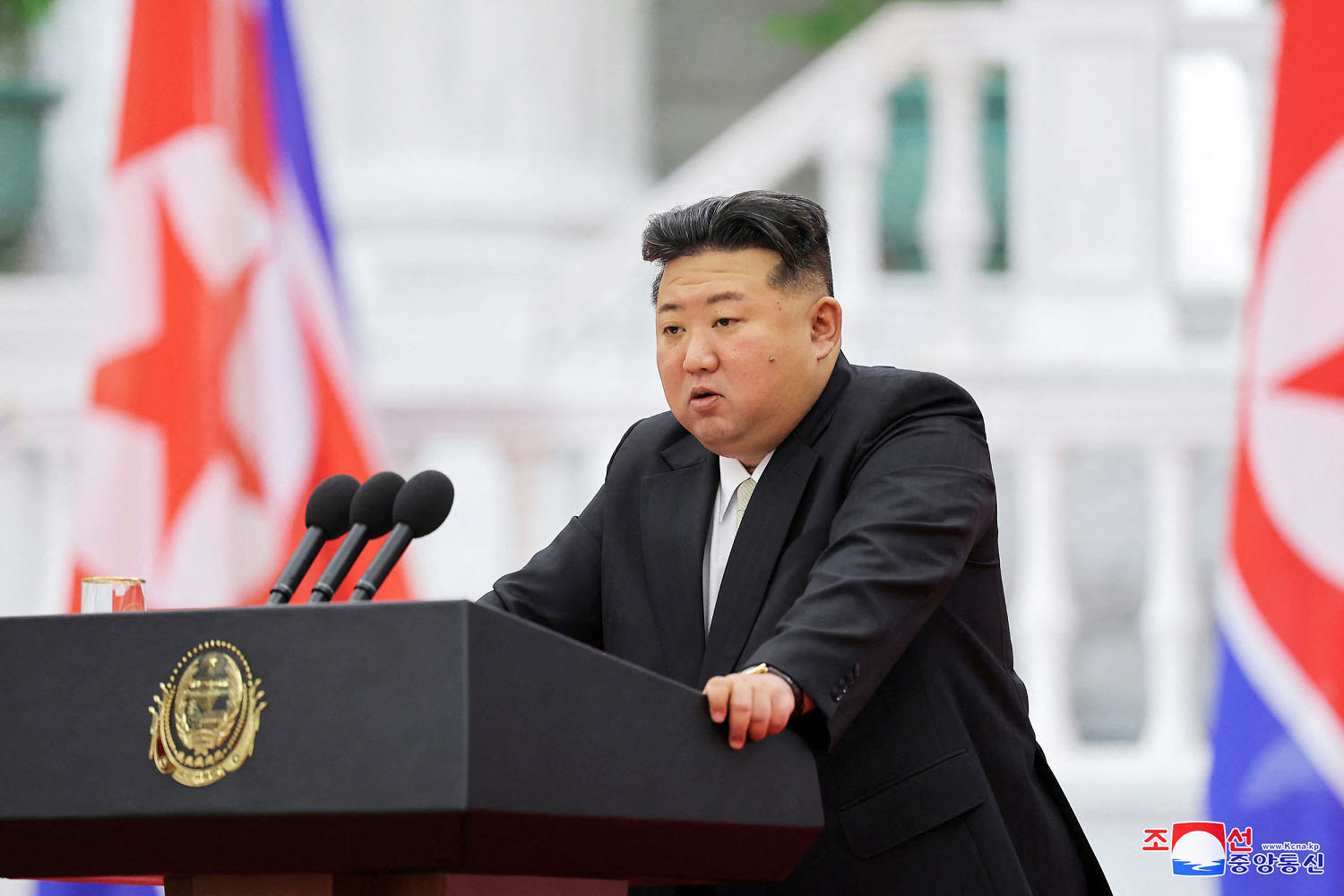Kim Jong Un is stepping out of big brother China's shadow

North Korea has been making some unusual moves recently.
In October, North Korea destroyed sections of two major roads connected to South Korea. Earlier that month, Kim Jong Un threatened to destroy the South with nuclear weapons if provoked.
Meanwhile, U.S. intelligence reports that North Korea is also sending troops to Ukraine to fight alongside the Russians. NATO confirmed this report on Monday. There are 3,000 North Korean troops in Russia accepting training, according to the U.S.
What does Kim Jong Un expect in return for such a significant favor? In an article for Foreign Affairs, U.S. Secretary of State Antony Blinken wrote that Putin “agreed to share Russia’s advanced weapons technology with North Korea, exacerbating an already grave threat to Japan and South Korea.” Blinken further noted that Putin and Kim have revived a Cold War-era pact, pledging military aid if either country goes to war.
Putin is desperate, and Kim is seizing this opportunity to negotiate a high price.
In addition to military technology, Kim has amplified his influence on the global stage. Suddenly, his actions are commanding the attention of the U.S., NATO, Japan, South Korea, Russia and China. He is no longer the inconsequential figure who shouted loudly but had little impact.
This development is not well-received by Kim’s "big brother," Xi Jinping.
When it comes to North Korea sending troops to Ukraine, Chinese media have shown little support. I saw a report on one of China’s major news sites, NetEase, mentioning that 18 North Korean soldiers recently sent to Ukraine have already fled. The article also pointed out that Russia’s reliance on North Korean weapons suggests that its own arms industry has taken a severe hit, and that the use of North Korean troops underscores Russia’s dire shortage of manpower.
Although this information is widely known, seeing it discussed openly in Chinese media is still somewhat surprising. The Chinese government has tightly controlled public opinion through strict regulation of international news coverage. So the fact that the Chinese media is reporting negatively on North Korea’s troop deployment suggests that the Chinese government disapproves.
Xi Jinping likely sees that North Korea’s involvement will not change the course of the war but will increase pressure from the West. Additionally, Xi is likely displeased that North Korea is aligning with Russia without China’s endorsement. This indicates that North Korea is drifting further from China’s influence, potentially complicating Xi’s strategic goals.
While Putin and Kim Jong Un have little to lose, Xi is in a very different position. Facing dire economic challenges and the failure of domestic rescue measures, the last thing Xi needs is to sever ties with the West completely. Xi still wants to sell electric cars to Europe, and many Chinese companies are eager to expand overseas.
Frankly, Xi does not want China to be labeled as part of a new "Axis of Evil" along with Russia, North Korea and Iran. Kim’s actions risk sucking China into that crowd.
However, if Xi senses that conflict on the Korean Peninsula is imminent or that the Russia-Ukraine war is spiraling out of control, he may adjust his timeline for taking action on Taiwan.
Xi wouldn’t want to move on Taiwan after these situations escalate, as he could then face pressure to send troops to the Korean Peninsula or deal with the political and military consequences of Putin’s failure. This would make any action on Taiwan far more difficult. Therefore, Xi may act on Taiwan before these crises fully unfold.
Before resorting to military action, Xi will likely exert maximum pressure to force Taiwan into “unification” without war. A crisis on the Korean Peninsula or a Russian failure in Ukraine could tighten his timeline.
The bottom line is, Xi may not want to invade Taiwan as the leader of a new "Axis of Evil." He expects sanctions if he takes Taiwan, but not a total cutoff from the West for a long period of time.
One important takeaway from North Korea’s moves is that although China, Russia, North Korea and Iran all consider the West a common adversary, their alliance is not as firm or stable as it might seem. They do not fully trust one another and are willing to compromise each other’s interests when it benefits their own.
Behind the scenes, there are complicated, separate sub-channels of communication: Kim talks to Putin privately, Putin talks to Xi privately, and Xi talks to Kim privately.
Simone Gao is an independent journalist. Her website is zoomingin.tv
-

Kim Jong Un is China's ally - but has become the 'comrade from hell'
Top stories - BBC News - November 1 -
Kim Jong Un's Risky Embrace of Russia Is AboutHis Regime'sSurvival
World - The Wall Street Journal - November 4 -

Will Trump Rekindle a Bromance With Kim Jong-un? South Koreans Worry.
Top stories - The New York Times - November 11 -

Kim Jong Un said to order mass production of suicide drones
Top stories - NBC News - 6 days ago -
North Korea's Kim Jong Un calls on military to prepare for war
World - Yahoo News - 3 days ago -

North Korea's Kim Jong Un urges improved military capabilities for war
Top stories - NBC News - 3 days ago
More from The Hill
-

12:30 Report — Trump's embattled nominees
Politics - The Hill - 24 minutes ago -

Gaetz withdraws from attorney general consideration
Politics - The Hill - 29 minutes ago -

For Iran, disinformation comes just behind assassination
Politics - The Hill - 30 minutes ago -

Jussie Smollett conviction overturned by Illinois Supreme Court
Politics - The Hill - 39 minutes ago -

Trump Cabinet picks: Here’s who’s on the list to carry out his agenda
Politics - The Hill - 1 hour ago
